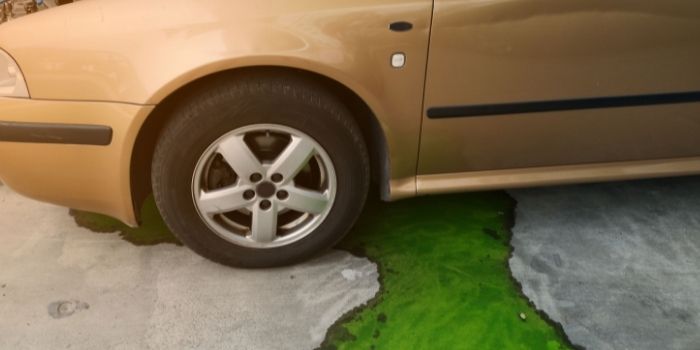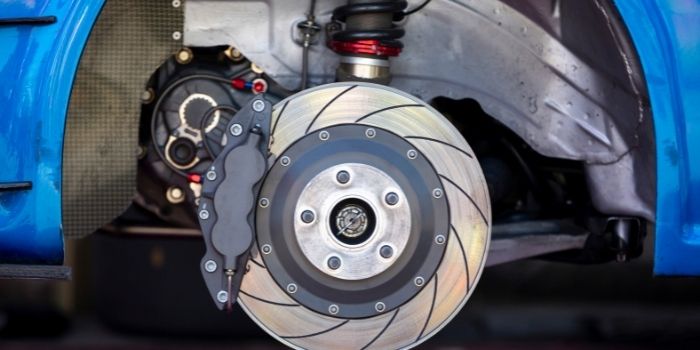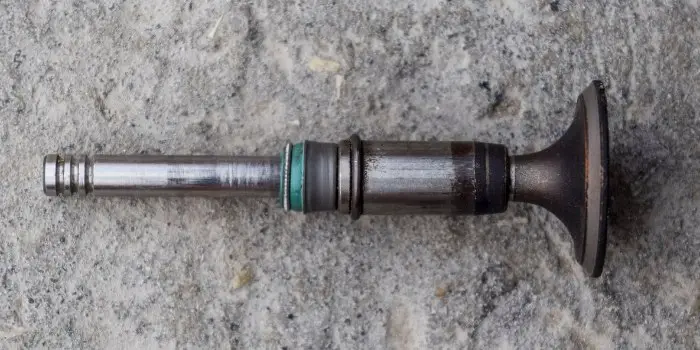Do you have a dripping radiator?
So, let’s dig beneath the hood and repair it. In this post, I’ll teach you how to repair leaks in your automobile.
Different coolants may perform an excellent job of keeping the radiator in good operating order.
And if you want to drive safely, make sure you keep the coolant tank filled with coolant.
To protect the significant investment, you made in your automobile’s radiator, you should also inspect the radiator regularly.
Because the reservoir that contains the coolant will become depleted as the automobile ages and its components deteriorate it may sometimes also cause leakages.

Table of Contents
What is a Leaking Radiator?
Basically, the coolant in the radiator should never have decreased in the first place.
And if you see your low coolant indicator blinking, you have a leaky radiator.
You may believe that adding a little more will suffice, but where are all the coolants going?
An automobile radiator is a well-organized network of tubes and fins. This network of cooling tubes protects your automobile from overheating.
They also contain the coolant, and they are all connected to a tiny tank positioned on the top and bottom.
Sometimes severe corrosion occurs, rendering the entire radiator inoperable. The most typical scenario would be for road debris to puncture the tubes.
How to Fix a Radiator Leakage Problem?
You never know what or when those tubes will leak. As a result, you should thoroughly examine the radiator for any leaks, moist patches, or rust.
Here are a few methods to fix your automobile radiator on your own:
Step 1: Determine the origin of the leak
Fill the overflow tank and drive about for 10 to 15 minutes before you park it in an open location, such as a park or your garage.
Look for any leaks; if there are any, or if you can smell the coolant, it’s coming from the radiator.
Determine the cause of the leaking radiator. It might be caused by a hose leak, an overflowing reservoir, or a faulty drain valve.
Step 2: Determine the impact of the problem
Determine the severity of the problem once you’ve identified the source of the leak. The leak is significant if the coolant is rushing out of the automobile rather than leaking gently.
Examine the leaking area carefully, looking for major cracks in the hose or reservoir.
If you believe the leak isn’t too bad, you can fix it yourself. However, if this is not the case, you will need to take your vehicle to a service shop.
Step 3: Apply the radiator leak stop
Small holes around the radiator can be easily fixed with a leak stop.
Using them is frequently the best solution for repairing an overflowing reservoir, hose, or a little leak in your radiator.
This product is easily available at any car parts store, or you may buy radiator leak stop goods online. Before using them, make sure you read the directions.
Generally, a leak stops the product’s substance is poured into the car’s radiator.
But a word of caution, before you open the clamp, ensure the radiator is cool enough to touch with your hands.
Step 4: Check your vehicles cooling system
The leak stop solution may address the leaking issue of your car’s radiator, however, a tiny leak may always get larger.
Remember to check your car’s temperature gauge, especially during the summer.
You should also do a frequent flush of coolant regularly for the radiator to work smoothly.
Examining the surface underneath the radiator might also be beneficial.
Remember that you should always do a routine auto radiator check because your vehicle and its components age with time.
Monitoring the radiator’s condition and sufficient coolant level are two common methods for keeping your car’s engine cool out of trouble.
What Causes a Car Radiator to Leak & Stop Working?
Coolant leaks, often referred to as radiator leaks are the number one cause of car radiators failing.
And these leaks can occur due to plenty of reasons.
If you don’t monitor the level of the coolant, hoses might get rusted and clogged.
This rust causes tiny holes in the radiator, which are known as pinhole leaks. This will result in coolant loss in the engine.
Simply expressed, it will create the leak, necessitating an immediate need for the repair of the radiator, or worst of all, an urgent replacement.
Furthermore, road debris contributes significantly to radiator corrosion.
Due to significant corrosion, your car’s complete radiator may become inoperable.
A radiator leak can also occur if the coolant clamp is not tight enough or it breaks, or radiator hoses get slacked and pop out, so be sure to inspect them regularly.
Should You Ever Drive Your Car with a Broken Radiator?
While you can drive your car without a working radiator fan, but you should never do that.
The cooling system in your vehicle is important to work at all the times for the better health of your car’s engine.
Especially if you need to drive in slow traffic areas and at a slow speed, the engine can get overheated very fast.
For cooling down the engine, all parts including the fan, thermostat and radiator hoses should be in good operating condition.
If you absolutely need to drive a car without a fan or with a busted radiator, try to pick the route that is free from heavy traffic.
While driving on the freeway go at a constant but higher speed. Plus, try to keep the gearbox in the highest gear possible.
This will help keep the engine’s RPM low, which will avoid overheating of the engine.
Monitor the temperature gauge to ensure that the engine is not overheating, if it does immediately turn off the engine and wait for a few minutes.
Conclusion
The radiator is a vital part of your vehicle. It helps to cool the engine and smooth the operation of the automobile.
Without it, your engine would overheat and most likely blow up.
The steps mentioned above will get your leaking radiator fixed.
However, if the leak is too severe, these procedures will only get you a few more times before you need to call a professional.
We hope you found this guide helpful and are now confident enough with keeping your radiator leak-free.

Based in Orem (Utah) John Paterson graduated from Utah Valley University and has begun writing in 2009. He has a large wealth of experience in writing articles related to cars, automotive repair, wheels, cleaning/maintenance, and much more. He has also written instructional articles in a similar niche for a few online publications as well. Currently, he works as a mechanic in his personal garage shop where he loves serving his countrymen from his heart.




